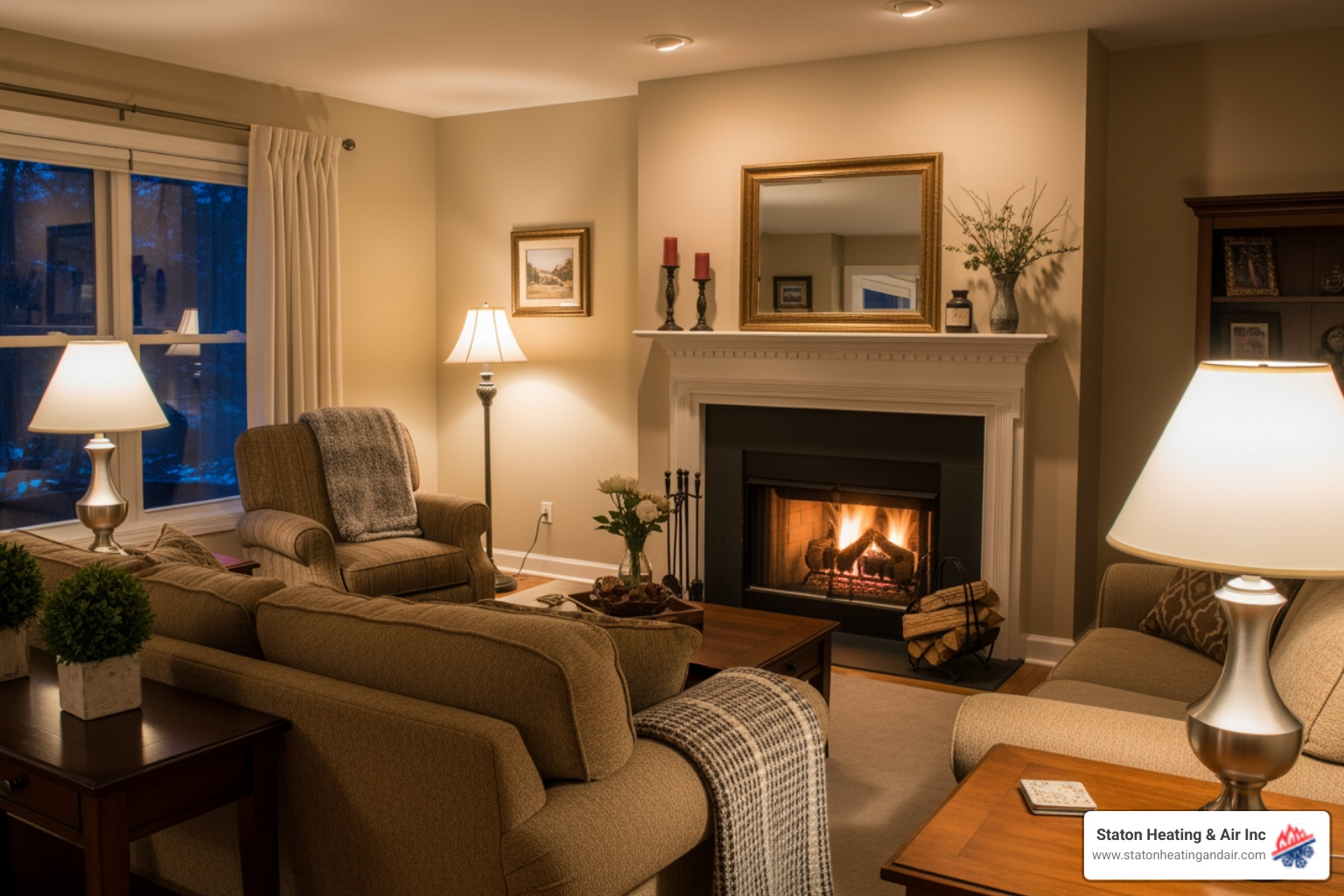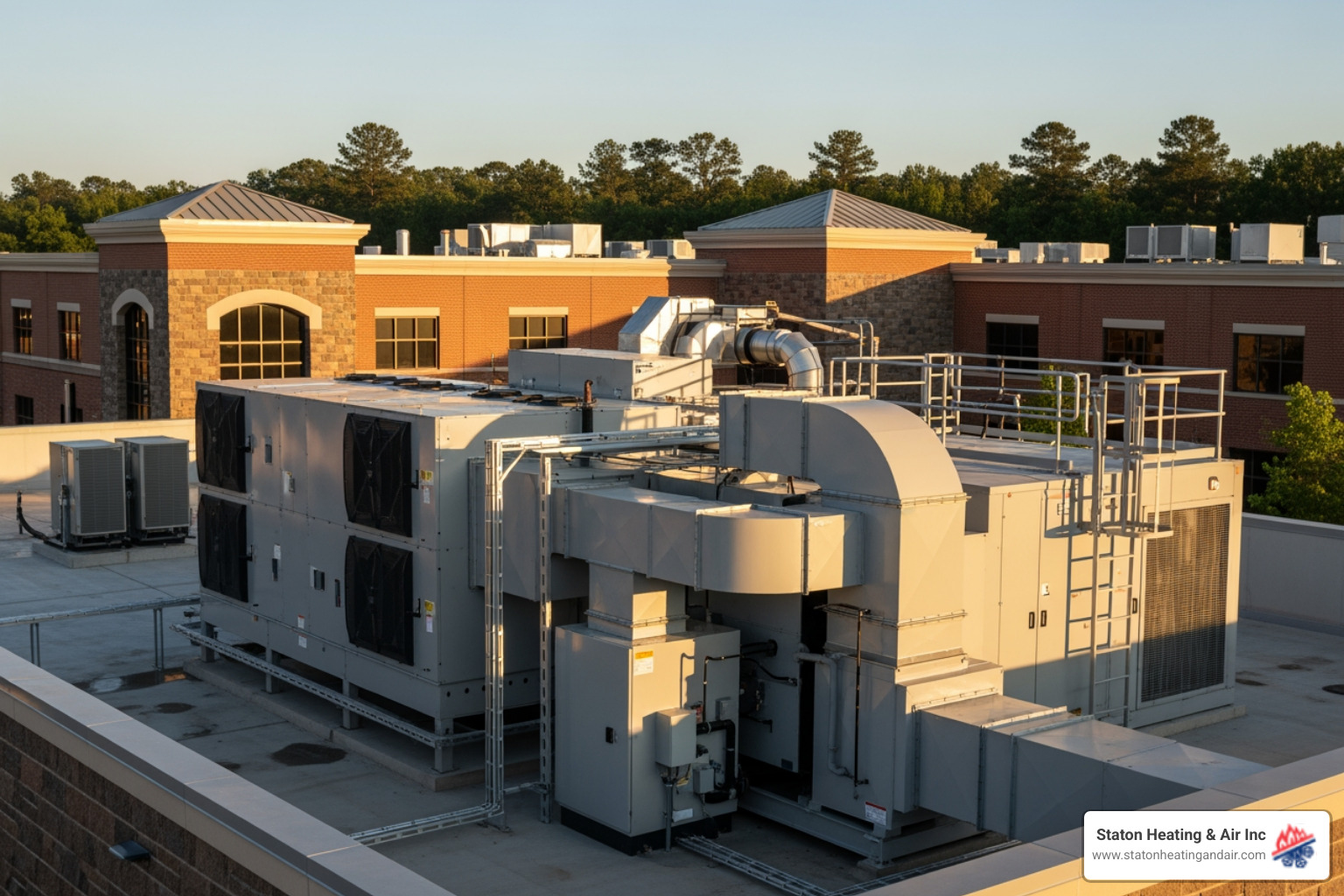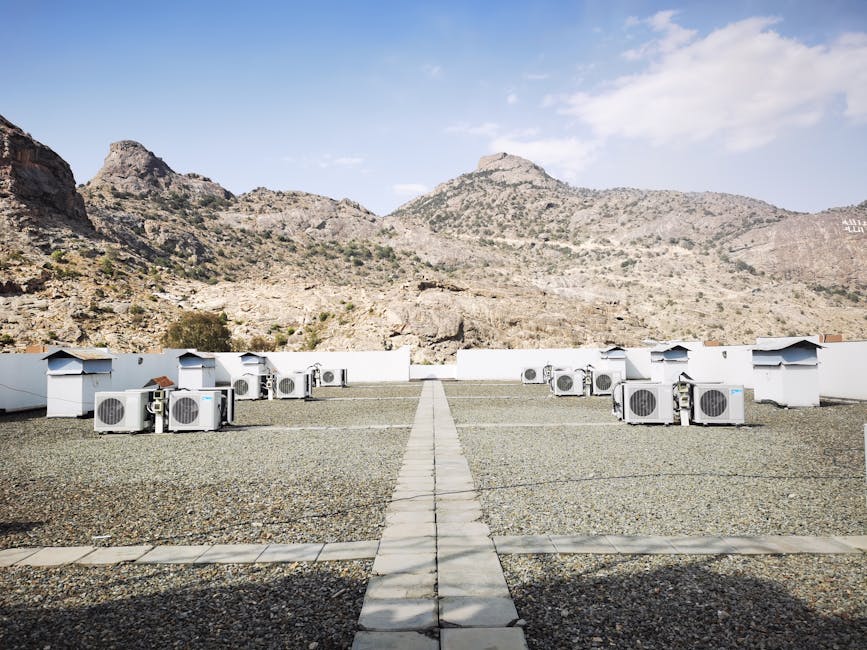What To Do When Your AC Circuit Breaker Keeps Tripping In Norcross
During the summer in Norcross, having your air conditioner shut off unexpectedly can cause a lot of discomfort, especially when the issue keeps happening. One common reason air conditioners stop working is a tripped circuit breaker. This problem isn’t just a minor inconvenience — it could be a warning sign of something more serious going on with the system. If your AC keeps shutting off and the breaker won’t stay on, it’s time to take a closer look.
Dealing with a repeatedly tripping circuit breaker gets frustrating fast. You may be tempted to keep resetting it, hoping it’ll hold, but that doesn't fix the underlying issue. Left unchecked, the problem can lead to bigger damage in the system or even electrical safety hazards. Instead of guessing, understanding what’s causing the issue can help you act quickly and get your cooling back on track before bigger repairs or even AC replacement become necessary.
Understanding Why AC Circuit Breakers Trip
An AC circuit breaker is a built-in part of your electrical panel that protects the unit from drawing too much power. When something is wrong — like a component working harder than it should or an internal failure — the breaker shuts the system down to stop further strain or potential electrical issues. When it works like it should, this breaker helps prevent overheating, fires, or damage to important AC parts.
But if it keeps shutting off repeatedly, it’s more than a one-time fluke. Here are several possible reasons the breaker trips:
- Dirty air filters: When filters are packed with debris, airflow drops and the system strains to compensate. This makes the motor work harder and can cause it to overheat.
- Clogged condenser coils: Outdoor units need space and cleanliness to release heat properly. If the coils are covered in grime, it raises the pressure inside and can trigger a shutdown.
- Low refrigerant levels: When your unit runs with less refrigerant than required, it may overheat, which can trip the breaker.
- Short circuits: Worn wiring or damaged components inside the unit can cause electrical shorts that quickly trip breakers for safety.
- Motor or compressor problems: Faulty motors or aging compressors draw more amps than they should, pushing the breaker beyond its limit.
One homeowner in Norcross noticed their AC seemed fine in the morning, but by late afternoon, the breaker kept flipping off. After checking filters and clearing the outdoor unit of leaves and dirt, the breaker still tripped. Eventually, an inspection found that the compressor was straining under low refrigerant — something that caused the system to overheat and forced the breaker to shut it down again and again. This kind of issue shows why it’s important to look deeper when the breaker won’t hold.
Common Causes of AC Circuit Breaker Tripping in Norcross
Humidity and long cooling hours in Norcross summers make residential AC systems work hard. That extra demand can expose weak or worn parts inside the unit, especially if the system hasn’t been serviced often. When you’re dealing with a circuit breaker that doesn't stay on, there are several location-specific causes you might be facing:
- Refrigerant leaks: These are common in older systems and reduce the unit’s cooling power. They make the compressor run longer than normal, often until it overheats.
- Worn electrical connections: Summer storms and daily use can wear down wires and connectors inside your AC. Loose wires may lead to short circuits that cause breakers to trip.
- Overloaded circuits: If your system shares a circuit with other appliances, this can push the electrical load past safe limits.
- Fan or blower motor issues: These motors control airflow through the system. If they’re failing, they might pull more power than they should, and that can trigger a shutdown.
- Poor airflow: Blocked ducts, dirty filters, or insulation problems make the system work harder, which increases the risk of overheating and electrical stress.
Many of these issues look minor at first. A fan not running at full speed or a short cycling compressor might be easy to ignore, but the breaker is doing its job and stopping what could be worse damage later on. Keep these symptoms in mind if your breaker trips:
- Warm air coming from vents
- AC unit short cycling (turning off and on frequently)
- Burning or odd electrical smells
- Clicking sounds near the breaker panel
- Sudden silence from the outdoor unit while the thermostat is still calling for cool air
When these signs show up, it's time to pause and reassess. Resetting the breaker might get you a few more minutes of cooling, but without solving the main cause, the problem is likely to get worse.
Steps to Take When Your AC Circuit Breaker Trips
When your AC circuit breaker trips, the first step is to avoid resetting it repeatedly without identifying the problem. This can lead to further damage. Instead, follow a clear process to help reduce risk and better understand what’s triggering the shutdown.
1. Turn Off the AC Unit
Switch off the thermostat to stop power demand from the unit. Then go to the electrical panel and flip the tripped breaker to the off position before turning it back on. If the breaker immediately flips back, stop there. This is a sign of an electrical problem.
2. Check for Dirty Filters
A clogged air filter restricts airflow, which can force the blower motor to work longer and hotter than needed. Slide out the filter and look for dust buildup. Filters should be cleaned or replaced regularly, especially in the peak cooling season.
3. Inspect the Outdoor Unit
Head outside to check for leaves, grass, or debris around the condenser unit. Clear out anything crowding the unit and check the fins for dirt or grime. Never open the unit or attempt repairs. If it looks overly dusty, you’ll need a technician to address it safely.
4. Look and Listen for Unusual Signs
Pay attention to smells (burning odor), sounds (buzzing or clicking), and behavior (short cycling or warm air from vents). All of these point to deeper problems inside the system.
5. Wait a Few Minutes Before a Reset
If the breaker stayed in the on position and the unit seems okay on the surface, wait 10 minutes before trying to run the AC again. Don’t ignore repeat trips. That means something inside still isn’t right.
Always avoid touching any electrical components inside the AC unit. If you’ve ruled out filter or outdoor blockages and the breaker keeps tripping, it’s time to contact our professionals for a safety check. Electrical issues, especially those involving shorts or damaged wiring, are dangerous without proper equipment and experience.
Preventative Measures to Avoid Future Circuit Breaker Issues
Most circuit breaker trips happen because of conditions that have been building for a while. Proper care and small checks throughout the season can prevent many of these problems.
Keep these maintenance tips in mind to reduce your risk during summer in Norcross:
- Replace or clean your AC filters at least every 1 to 2 months. Dust and lint block airflow quickly in high-use periods.
- Remove leaves, grass, and buildup from around the outdoor condenser every two weeks.
- Schedule professional inspections before peak cooling season. Our technicians can check electrical connections, refrigerant levels, and motor performance.
- Avoid plugging heavy appliances into the same circuit your AC uses. This helps prevent overloads.
- Watch for small warning signs like odd noises, higher electric bills, or uneven cooling. These often show up before a breaker trip happens.
When you follow a consistent upkeep routine, your AC system stays in better shape, requires fewer repairs, and avoids emergencies during the hottest parts of summer.
When to Consider AC Replacement in Norcross
If your AC is tripping the breaker more often each year despite filter changes, clean coils, and professional servicing, the system may be reaching the end of its working life. Older systems have more wear on internal parts, which leads to overworking and electrical faults.
You may want to start thinking about replacement if:
- Your unit is over 12 years old and experiencing frequent electrical and mechanical issues
- Repairs have become routine, and service calls are starting to add up
- Cooling is no longer dependable during hotter months
- Energy use has gone up even though your usage habits haven’t changed
Investing in a new AC system might feel like a big step, but it usually means fewer circuit-related trips, improved airflow, and better control of cooling zones. Newer models also offer higher energy efficiency, which can lower the cost to run the system long-term, especially in a place like Norcross that sees extended summers.
Keeping Cool in Norcross with Reliable AC Solutions
A circuit breaker that keeps shutting off may seem like a basic electrical nuisance, but it usually signals an issue that shouldn’t be ignored. Breaker trips protect your AC from running under dangerous or stressful conditions. Whether it’s a sign of overheating, poor airflow, or electrical wear and tear, taking early action can often catch the problem before it grows.
From correcting airflow problems to replacing aging systems, having the right help makes a big difference. Long-lasting comfort in Norcross depends on AC systems that run safely and smoothly day after day. Don’t wait for back-to-back shutdowns or high bills before taking the issue seriously. When the fix involves more than a quick filter change, our technicians can find the true cause and help you move forward with confidence.
If your air conditioner continues to trip the breaker and shows signs of strain, it may be time to consider AC replacement in Norcross to ensure reliable cooling and improved energy efficiency throughout the season. Staton Heating & Air Inc can help determine the best solution for your home based on your current system's condition and your comfort needs. For a quick estimate or to book a service visit, please contact us today.
Recent Posts
What Our Customers Are Saying


Ready to Transform Your Home?

Recent Blog



















